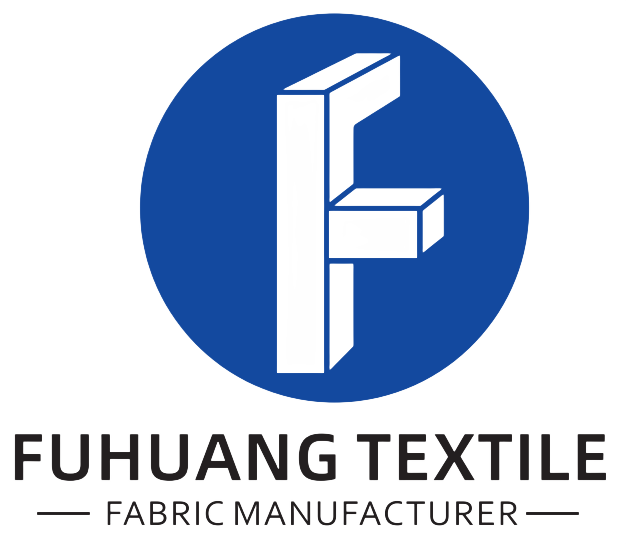제품 품질과 제조업체 평판 평가하기
산업 분야를 막론한 일관된 폴리에스터 품질의 중요성
폴리에스터 필라멘트의 덴티어가 변화하거나 염료 흡수율이 달라질 경우, 이로 인해 제품 후속 공정에서 심각한 문제가 발생하는 경우가 많습니다. 2023년 딜로이트(Deloitte)의 최근 연구에 따르면, 섬유 구매자의 거의 10명 중 7명은 단 한 차례의 품질 저하에도 불구하고 공급업체와의 관계를 끊는 것으로 나타났습니다. 폰먼(Ponemon)의 작년 연구에 따르면, 이러한 결함으로 인해 제조업체는 매년 약 74만 달러의 손실을 입고 있으며, 수치는 그 자체로 많은 것을 말해줍니다. 그러나 의료용 등급의 직물의 경우는 더욱 큰 문제입니다. 이러한 용도에서는 폴리에스터가 ISO 13485 인증 하의 엄격한 기준을 충족해야 하며, 신장률(연신율) 변동은 반드시 1% 미만으로 유지되어야 합니다. 이것이 왜 그렇게 중요한가요? 만약 수술용 메시가 재료의 불일치로 인해 적절한 장력 수준을 유지하지 못한다면, 병원은 제품 리콜 등의 가능성을 포함한 심각한 규제 문제에 직면할 수 있습니다.
공급업체 실적과 최종 제품 성능 연계하기
3~5년간의 생산 데이터를 검토하여 일관성 있는 패턴을 파악합니다:
- 자동차용 직물 공급업체는 난연성 폴리에스터에서 ³0.3% 미만의 결함률을 유지해야 합니다
- 의류 협력업체는 50회 세탁 후 색상 견뢰도 편차가 5% 이상임을 입증해야 합니다.
칩에서 섬유, 원단에 이르기까지 수직적 통합 운영을 하는 제조업체는 외부 위탁 생산에 의존하는 업체보다 일반적으로 23% 더 엄격한 허용 오차를 달성합니다.
사례 연구: 선도적인 의류 브랜드가 공급업체 검증을 통해 결함을 어떻게 방지했는가
글로벌 스포츠웨어 기업은 다음 요소를 우선시하는 가중치 기반 공급업체 평가 체계를 도입한 후, 솔기 미끄러짐 사례를 41% 줄였습니다:
- 제3자 ISO 9001 감사 결과 (35% 반영)
- 20톤 이상 대량 주문에 대한 과거 정시 납품 실적 (30%)
- 재활용 PET 혁신 분야의 R&D 투자 (20%)
공급망 전문가들에 의해 검증된 이 접근법은 해당 기업이 잠재적 보증 청구액 270만 달러를 피할 수 있도록 도왔습니다.
제3자 감사를 활용하고 품질 평가 시스템 구축하기
100점 기반 검증 프레임워크 개발:
| 기준 | 감사 방법 | 무게 | 임계값 |
|---|---|---|---|
| 불량률 일관성 | SGS 분기별 보고서 | 25% | ³1.2% (12개월) |
| 인증 | Oeko-Tex/GRS 인증 | 20% | 활성 및 범위 4+ |
| 장비 정렬 | 현장 TÜV 점검 | 15% | 98% 이상 준수 |
이 공급업체 평가 모델에서 85/100 이상의 점수를 받은 제조업체는 150–220 데니어 정밀도가 요구되는 기술용 직물 응용 분야에서 입증된 신뢰성을 보유하고 있습니다.
인증 및 규제 준수 여부 확인 (Oeko-Tex, GRS, Intertek)
Oeko-Tex 인증을 통해 소비자 안전 보장
좋은 폴리에스터 제조업체를 찾고 계신가요? 반드시 OEKO-TEX Standard 100 인증을 보유하고 있는지 먼저 확인해보세요. 이 인증이 정확히 무엇을 의미할까요? 이는 포름알데히드나 유해한 중금속과 같은 100가지 이상의 유해 화학물질이 섬유에 포함되지 않도록 보장하는 글로벌 기준입니다. 2023년 발표된 최근 산업 보고서에 따르면, 이 인증을 받은 업체와 협력하는 기업들은 제품 내 화학 물질 관련 문제가 훨씬 적었으며, 약 89% 감소한 것으로 나타났습니다. OEKO-TEX 인증과 일반 유기농 인증의 가장 큰 차이점은 원자재만이 아니라 완제품 자체를 검사한다는 점입니다. 그래서 어린이 의류 및 의료용 섬유를 제조하는 많은 기업들이 이를 신뢰하고 활용하고 있습니다. 어떻게 준수 여부를 검증할까요? 서류 심사뿐 아니라 사전 통보 없이 실시되는 현장 점검과 완성된 원단 샘플에 대한 실제 실험실 테스트를 통해 확인합니다.
글로벌 리사이클드 스탠다드(GRS)를 통한 지속 가능한 조달
국제 재활용 기준(GRS)은 환경적 책임성과 공급망 투명성을 보장합니다. 인증 제조업체는 다음을 입증해야 합니다.
- 최종 제품에 최소 20% 이상의 재활용 성분 포함
- 재활용 원자재의 완전한 추적 가능성
- 폐수 및 에너지 사용 기준 준수
2023년 섬유교환기구(Textile Exchange) 보고서에 따르면, GRS 인증 업체와 협력하는 브랜드는 지속 가능성 주장에 대해 고객 신뢰도가 32% 더 높게 나타났습니다. 그린워싱을 방지하기 위해 인증기관 데이터베이스를 통해 GRS 인증서를 확인하고 연간 감사 요약본을 요청하십시오.
인테르텍 및 기타 인증을 통한 국제 시장 진출
인테르텍, 사트라(SATRA), ISO 9001 인증은 주요 규제 준수를 보장함으로써 글로벌 시장 진입을 용이하게 합니다.
- EU REACH 화학물질 제한 규정
- 북미 CPSIA 안전 요건
- 아시아 관세 동맹 기술 표준
예를 들어, 인터텍의 ACCU Mark 인증은 2024년 무역 물류 데이터 기준으로 ASEAN 시장에서 세관 통관 지연을 48% 줄여줍니다.
적합성 검증을 위한 사전 자격 검사 체크리스트 작성
대상 시장 및 제품 유형에 맞춘 가중 평가 점수 체계를 사용하세요:
| 준수 요소 | 확인 방법 | 계량 |
|---|---|---|
| 화학 안전 | OEKO-TEX® 시험 보고서 | 35% |
| 재활용 소재 | GRS 거래 인증서 | 30% |
| 생산 윤리 | SMETA 감사 보고서 | 20% |
| 품질 관리 | ISO 9001 인증 | 15% |
디지털로 검증 가능한 인증 번호를 요구하세요. 글로벌 리사이클드 스탠다드(GRS) 포털은 GRS 관련 주장의 실시간 검증을 가능하게 합니다. EU 생태디자인 프레임워크(2025)와 같은 변화하는 규정에 맞추어 매년 체크리스트를 업데이트하세요.
비용 효율성과 장기적 가치 평가
폴리에스터 가격 변동성 및 원자재 동향 대응
폴리에스터 원자재 비용(PTA 및 MEG)은 분기별로 최대 22%까지 변동하며(ICIS 2023), 직접적으로 생산 예산에 영향을 미칩니다. 주요 제조업체들은 시장 변동기 동안 비용 안정화를 위해 고정 가격 계약을 제공합니다. 현재 의류 업계의 63%가 유가 변동성과 지정학적 리스크에 대비해 12~18개월간 가격을 고정하는 방식을 사용하고 있습니다.
초기 비용과 내구성, 파트너십 이점 간의 균형 조절
| 비용 요인 | 저비용 공급업체 | 파트너 제조업체 |
|---|---|---|
| 초기 재료 비용 | $1.20/kg | $1.45/kg |
| 5년 유지보수 | $0.35/kg | $0.12/kg |
| 결함률 | 8.2% | 1.9% |
2022년 섬유교환협회(Textile Exchange) 연구에 따르면, 저비용 조달보다 전략적 파트너십을 우선시하면 결함 수정 및 유지보수 비용 감소를 통해 전체 소유 비용을 30% 절감할 수 있습니다.
거래량 및 계약 기간에 따른 단계별 가격 협상
연간 500톤 이상의 대량 구매자는 장기 계약을 통해 12~15% 할인을 받으며, 원자재 가격 연동 조항이 포함되는 경우가 많습니다. 중소규모 기업도 혜택을 얻고 있는데, 제조업체의 76%는 폴리에스터 섬유, 필름 및 재생 소재의 구매량을 통합할 경우 7~10%의 리베이트를 제공합니다(Textile World 2024).
공급망의 신뢰성과 확장성 보장
귀사의 성장 요구에 맞춘 제조업체 생산 능력 연계
제조업체가 얼마나 많은 생산 능력을 보유하고 있는지는 기업이 규모를 확장하는 데 있어 성과에 직접적인 영향을 미친다. 이미 최대 가동 상태에서 운영 중인 많은 공급업체들은 특정 계절에 주문량이 20~30% 증가할 경우 어려움을 겪는다. 따라서 생산량이 증가하더라도 제품 품질을 일관되게 유지해 주는 자동화된 섬유 압출 시스템과 같은 확장 가능한 기술을 갖춘 제조업체를 찾는 것이 합리적이다. 맥킨지 리서치에 따르면 일부 기업들은 AI를 생산 일정 관리에 활용할 경우 약 98%의 정시 납품률을 달성한다고 보고했으나, 이 결과는 산업 특성 및 구현 세부사항에 따라 달라질 수 있다.
공급 차질 완화: 이중 조달 및 지정학적 리스크 관리
다양한 공급업체를 확보하는 것이 요즘 점점 필수적이 되고 있습니다. 특히 작년에 약 절반(약 45%)의 기업들이 특정 지역의 전쟁 및 분쟁으로 인해 문제가 발생했기 때문입니다. 잠재적인 제조업체를 검토할 때는 단순히 기술 역량만 확인하는 것을 넘어, 실제로 어느 지역에 위치해 있는지도 주의 깊게 살펴야 합니다. 좋은 무역 협정이 적용되는 지역에 위치한 공장들은 예산을 크게 어지럽힐 수 있는 성가신 관세 변동을 피할 수 있는 경향이 있습니다. 현명한 기업들은 자연재해나 정치적 문제와 같은 예기치 못한 상황이 발생했을 때 백업 생산 장소를 명시적으로 포함하는 계약을 체결하기 시작하고 있습니다. 이러한 계획은 공급망이 예기치 않게 흔들릴 때 큰 차이를 만들어냅니다.
리드 타임, 물류 및 재고 탄력성 평가
산업용 폴리에스터 주문의 최적 리드 타임은 4~6주 정도이며, 기후 변화로 인해 성수기에는 운송 기간이 최대 200%까지 연장될 수 있습니다. 다음 사항을 제공하는 제조업체와 협력하세요:
- 생산 거점에서 500마일 이내의 지역 창고 보유
- 귀사의 ERP 시스템과 연동된 실시간 재고 추적
- 연간 소비량의 ³¥15%를 커버하는 안전 재고 확보
RFID 태그가 부착된 원자재를 사용하는 공급업체는 수작업 시스템 대비 재고 오차를 60% 줄이며, 공장에서 최종 제품까지의 추적 가능성을 보장합니다.
기술 전문성 및 혁신 역량 검토
주요 제조 파라미터: 덴티어, 온도 및 드로잉 제어
섬유 두께(덴티어), 온도 제어(±1.5°C 허용오차), 드로잉 속도의 정밀성이 인장 강도와 염색 균일성을 결정합니다. 자동차 텍스타일과 같은 고응력 응용 분야에서 덴티어의 편차가 2%를 초과할 경우 내구성이 18% 감소할 수 있습니다. AI 기반 모니터링 시스템을 사용하는 공급업체는 수동 감독에 의존하는 업체보다 생산 이상 현상을 31% 더 적게 보고합니다.
필름, 섬유 및 특수 응용 분야를 위한 맞춤형 옵션
최상위 제조업체들은 니치 마켓을 위한 특화된 솔루션을 제공합니다:
- 유연한 전자제품용 초박형(<15μm) 폴리에스터 필름
- 산업용 벨팅용 고강도 섬유(³¥8g/데니어)
- ISO 20743 규격에 부합하는 항균 코팅
이러한 역량을 통해 브랜드들은 작년에 시장 점유율이 27% 증가한 액티브웨어용 통기성 방수 막과 같은 첨단 소재에 대한 수요 증가에 대응할 수 있습니다.
미래를 위한 솔루션을 개발하는 R&D 중심 제조업체와의 협업
연구 개발에 자사 자금의 최소 8% 이상을 투자하는 기업들은 업계 평균보다 약 3배 빠르게 새로운 폴리머 공식을 개발하는 경향이 있습니다. 2023년 '섬유 기술 리뷰(Textile Technology Review)' 보고서에 따르면, 이러한 혁신적인 공급업체가 진보를 중시하는 제조업체와 협력할 경우, 재활용 PET 대체재를 일반 공급업체보다 약 40% 더 빠르게 시장에 선보일 수 있습니다. 또한 생물기반 폴리에스터 소재 개발에 주력하는 미래 지향적 기업들에 대해서도 잊어서는 안 됩니다. 이들 소재는 2030년 계획대로 진행된다면 향후 몇 년 안에 탄소 배출량을 약 절반으로 줄일 수 있는 잠재력을 가지고 있습니다.
올바른 폴리에스터 제조업체를 선정한다는 것은 기술적 우수성과 함께 지속적인 소재 과학 혁신 투자를 병행하는 공급업체를 선택하는 것을 의미합니다.
자주 묻는 질문
다양한 산업 분야에서 폴리에스터 품질 일관성이 중요한 이유는 무엇입니까?
폴리에스터 품질의 일관성은 매우 중요하며, 변동이 있을 경우 제품 결함 및 규제 문제와 같은 중대한 문제를 초래할 수 있습니다. 특히 의료용 등급의 직물에서 더욱 그렇습니다.
폴리에스터 제조업체가 보유해야 할 인증은 무엇입니까?
제조업체는 안전성, 지속 가능성 및 규제 준수를 보장하기 위해 OEKO-TEX Standard 100, Global Recycled Standard(GRS), Intertek 등의 인증을 보유하고 있는 것이 이상적입니다.
기업은 어떻게 공급망의 신뢰성을 확보할 수 있습니까?
기업은 확장 가능한 기술을 보유한 제조업체를 선택하고, 공급업체의 위치를 다변화하며, 지정학적 리스크 관리를 위한 전략을 도입함으로써 신뢰성을 확보할 수 있습니다.
전략적 파트너십이 비용 효율성에 어떤 영향을 미칩니까?
전략적 파트너십은 낮은 초기 재료 비용보다는 품질과 내구성에 초점을 맞춤으로써 총 소유 비용을 줄여주며, 이로 인해 결함 수정 비용을 최소화할 수 있습니다.
폴리에스터 제조업체 선정 시 기술 혁신은 어떤 역할을 합니까?
기술 혁신은 첨단 소재 솔루션과 정밀한 제조 조건을 보장하고 친환경 대안의 빠른 개발을 가능하게 하여 미래 준비형 비즈니스 전략을 지원하기 때문에 매우 중요합니다.

 EN
EN
 AR
AR
 BG
BG
 HR
HR
 CS
CS
 DA
DA
 NL
NL
 FI
FI
 FR
FR
 DE
DE
 EL
EL
 HI
HI
 IT
IT
 JA
JA
 KO
KO
 NO
NO
 PL
PL
 PT
PT
 RO
RO
 RU
RU
 ES
ES
 SV
SV
 CA
CA
 TL
TL
 IW
IW
 ID
ID
 LV
LV
 LT
LT
 SR
SR
 UK
UK
 VI
VI
 SQ
SQ
 HU
HU
 MT
MT
 TR
TR
 FA
FA
 MS
MS
 BN
BN
 LA
LA
 MY
MY




